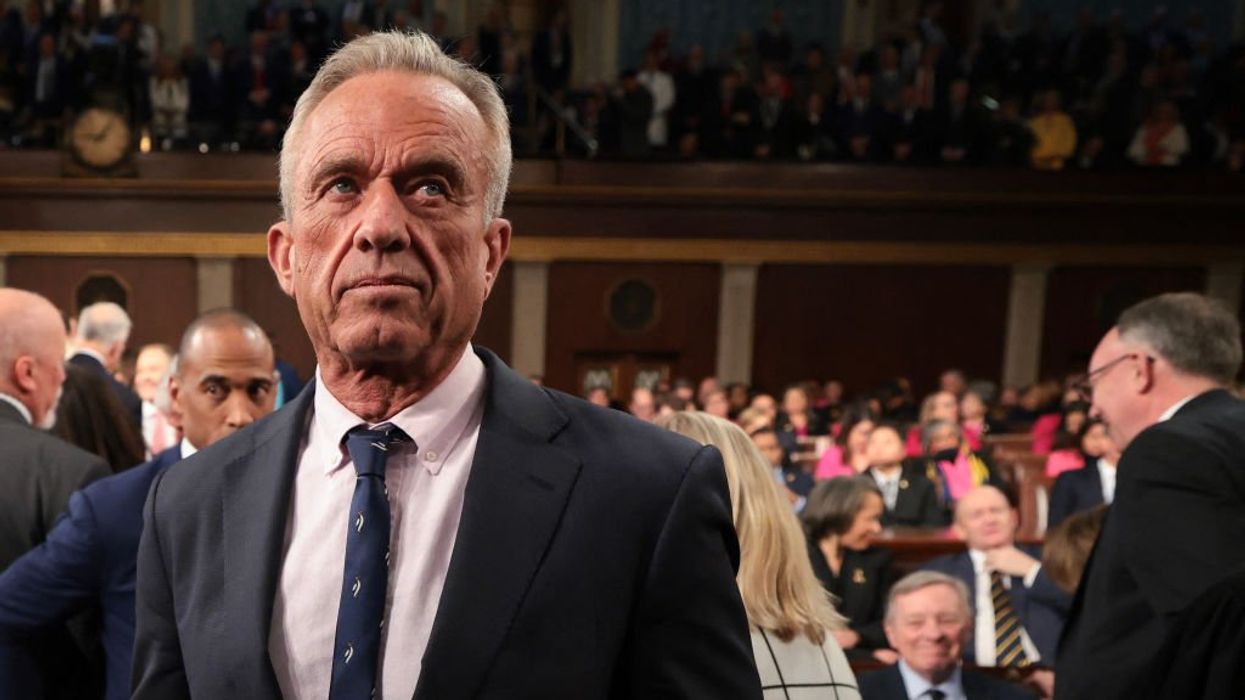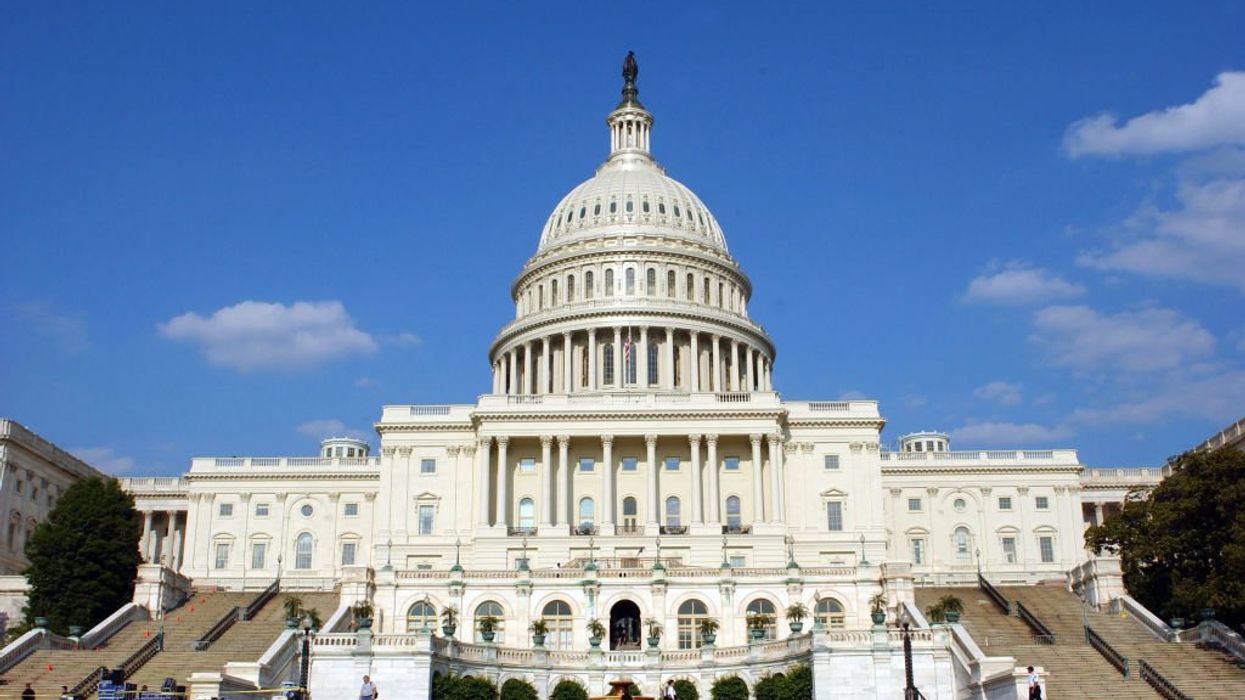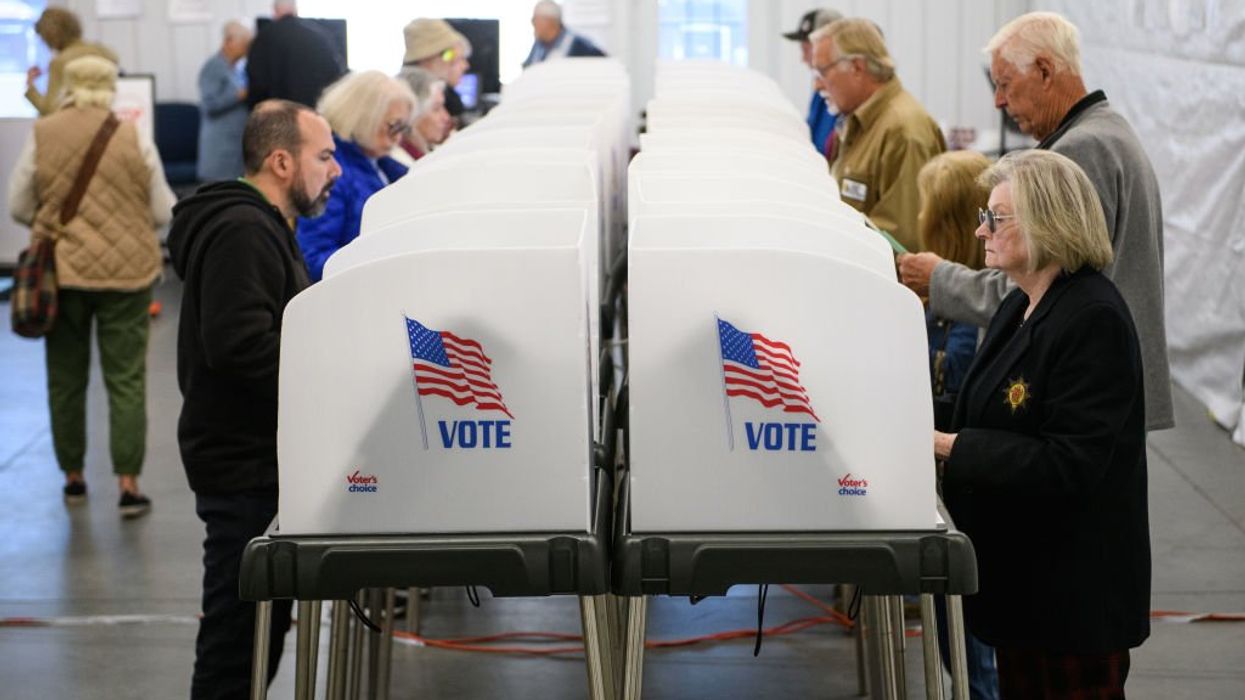GLENN: This is from The Economist. There's a story in The Economist now about what is the economic plan of the president?
And I just want to quote this. This is just -- this is all in verbatim, okay? So this is question, answer, question, answer. This is not somebody writing this. This is verbatim.
ECONOMIST: But beyond that, it's okay if the tax plan increases the deficit?
TRUMP: It's okay because it won't increase it for long. You may have two years where you'll -- you understand the expression prime the pump.
ECONOMIST: Yes.
TRUMP: We have to prime the pump.
ECONOMIST: Well, that's very Keynesian.
TRUMP: "We're the highest taxed nation in the world." Have you ever heard that expression before, for this particular type of event?
ECONOMIST: Priming the pump?
TRUMP: Yeah, have you heard it?
ECONOMIST: Yes.
TRUMP: Have you heard the expression used before? Because I hadn't heard it. I mean, I just -- I came up with it a couple of days ago, and I thought it was good. It's what you have to do.
GLENN: "Priming the pump" is an expression that you'd never heard before? You'd never heard "prime the pump," and you claim to come up with it a couple of days ago?
Priming -- what the hell do you think "quantitative easing" is? What do you even think "helicopter money" is? What do you think "tax cuts" are?
You're priming the pump. Priming the pump is Keynesian. It is -- it's been out for -- for -- or, Keynesian. It's come out -- how do you say it?
STU: Keynesian.
GLENN: Keynesian.
It's been out since the Depression. And before that, it was used for actual pumps.
STU: Yeah, I mean, it's obviously a phrase that's about actual pumps from the mid-1800s.
GLENN: So he's talking to a guy from The Economist that can talk deeply. And our president thinks he came up with the term, the economic term, "priming the pump."
Now, here's why this is a problem. It shows you haven't thought about this at all. If you have been in business, how do you not know priming the pump? How do you not know -- do we have that clip from Vice President Biden? Can you play that, Sarah? Do you have it?
BIDEN: Now, people say -- when I say that, people look at me and say, "What are you talking about, Joe? You're telling me we've got to go spend money to keep from going bankrupt?" I answer, "Yeah, that's what I'm telling you."
GLENN: That's called priming the pump.
JEFFY: Priming the pump.
STU: Yeah. It's usually used by the left.
GLENN: Correct. So he's never -- he's never thought of stimulus. So when he was talking about a trillion dollar stimulus package, he didn't really understand the concept of priming the pump.
STU: Which is -- I believe an incorrect concept.
GLENN: I do too.
STU: However, if you're going to spend a trillion dollars, you should probably know it.
GLENN: So he didn't...think of that. It didn't connect to him that, yes, we're going to spend a trillion dollars, but that will get the economy starting to role.
Now, how is that even possible? More disturbing is, I think, how this happened. He wasn't just in bed going, you know what, it's like the old pump. And remember, you had to -- you had to prime it a couple of times. Push it a couple of times to get it going. And then it would -- he didn't say -- he wasn't laying in bed thinking about that. I mean, Viagra, I would imagine, is what he thinks of as priming the pump. But he wasn't sitting thinking about an old water pump and priming the pump and then tying that to economic theory. Here's probably what happened: He's sitting in a meeting and they're talking about the economy and what they're going to do. And somebody says, "Yeah, I mean, that's priming the pump." And he probably thought, "You know what, what you just said, you're all wrong about. Because you're probably all talking about the water, Viagra, something. But if we use money instead of water, priming the pump." And probably everybody in the room was too afraid or whatever to say, "Yeah. That's what this is. Priming the pump. That's what we were talking about. You don't think you just came up with that." They didn't say anything. So he goes off thinking, "I am a freaking genius. I heard some guy talking about priming the pump. And I thought to myself, wait. We're in an economic meeting. Let's tie that principle to money. You got to get that water flowing. Once you get that water up to the top, then one little push, and it all starts to -- I'm a genius."
That is --
STU: Yeah. It's not -- it's suboptimal, I would say.
JEFFY: Yeah.
GLENN: Can you give him the benefit of the doubt, I mean, for this?
STU: Again --
GLENN: This is The Economist, verbatim.
STU: Yeah, no, I think you're probably right on how that's happened. Merriam-Webster today has been tweeting about how the term was first tied to economic principles in 1933. But I think honestly -- and correct me if I'm wrong here, Glenn, because it's scary that he -- you know, it's a ridiculous moment, right? But, I mean, it's sort of Trumpian. And maybe you're like, well, you know, he has these moments. And he takes credit for everything. He invented everything. He's always had the highest ratings. Like, maybe you could brush it off from that perspective, where he's just kind of bragging about what he does.
But in the -- what he's talking about is a liberal economic policy.
GLENN: Yes.
STU: He doesn't reject Keynesianism. He sticks with it. In fact, he doesn't -- well, he doesn't comment on it at all. Whether he knows what it is or not, I don't know. But the concept of priming the pump is very clearly a left-wing principle. It is -- it's Paul Krugman central. Right? Remember when Paul Krugman said --
GLENN: It's what we've been doing.
JEFFY: Yeah.
STU: -- remember when Paul Krugman was like, well, if we just had aliens coming down. If we thought aliens were going to attack, even if it wasn't a real attack, this economy would go crazy because we'd start spending and it would get all the spending going.
That is a left-wing principle. And the fact that, not only is that not offensive to me -- he doesn't stop the interview and go, whoa, whoa, that's not what I'm talking about at all. I'm not talking about Keynesianism here. That's not what this is.
He doesn't stop him because he doesn't either know or he does believe it. And the second one is worse.
GLENN: No, no, no. I don't think it's either of those.
We have to prime the pump. It's very Keynesian. We're the highest taxed nation in the world. Have you heard that expression before, this particular time of event? Priming the pump?
Yeah.
Have you heard of it?
Yes. I heard the expression used before -- or, I've never heard the expression used before. I hadn't heard it. I mean, I just came up with it a couple of days ago.
I don't even think he's listening to the guy.
JEFFY: No.
GLENN: His answers don't matter. The answers of, yes, it's very Keynesian. Priming the pump. It doesn't matter. He's just monologuing, and the answer could be anything.
STU: Yeah.
GLENN: He's so convinced -- and the reason why I bring this up is, was anybody in the Oval Office saying, "Mr. President, do you know what you're going to do by bringing -- you're going to bring hell down on all of us?" There are obviously 30 people that are talking to the Washington Post that don't feel like they have -- they're being listened to at all by this guy. And they're saying these things -- I mean, his friends are -- are saying these things.
Is it because they feel like he's not listening and this could be trouble?
I mean, there is a problem when you have 30 people in and around the West Wing that are leaking on something that could be the end of a presidency. That's -- that's not good.
STU: No.
GLENN: And I think it's because, is there anyone that is around him that is saying, "Mr. President, you can't -- no. Stop."
STU: It's funny. The only two I've seen that have been reported as to opposing the Comey firing. Not because they loved Comey, but because they thought it would be this disaster of a PR issue. The only two that I've seen: Reince Priebus and Steve Bannon. Apparently they were like, "Eh, this isn't a good idea. It's not going to look good."
Everybody else was like, "Well, it might not look good, but it's worth doing." At least that's the reporting. We'll see how that fleshes out.

















